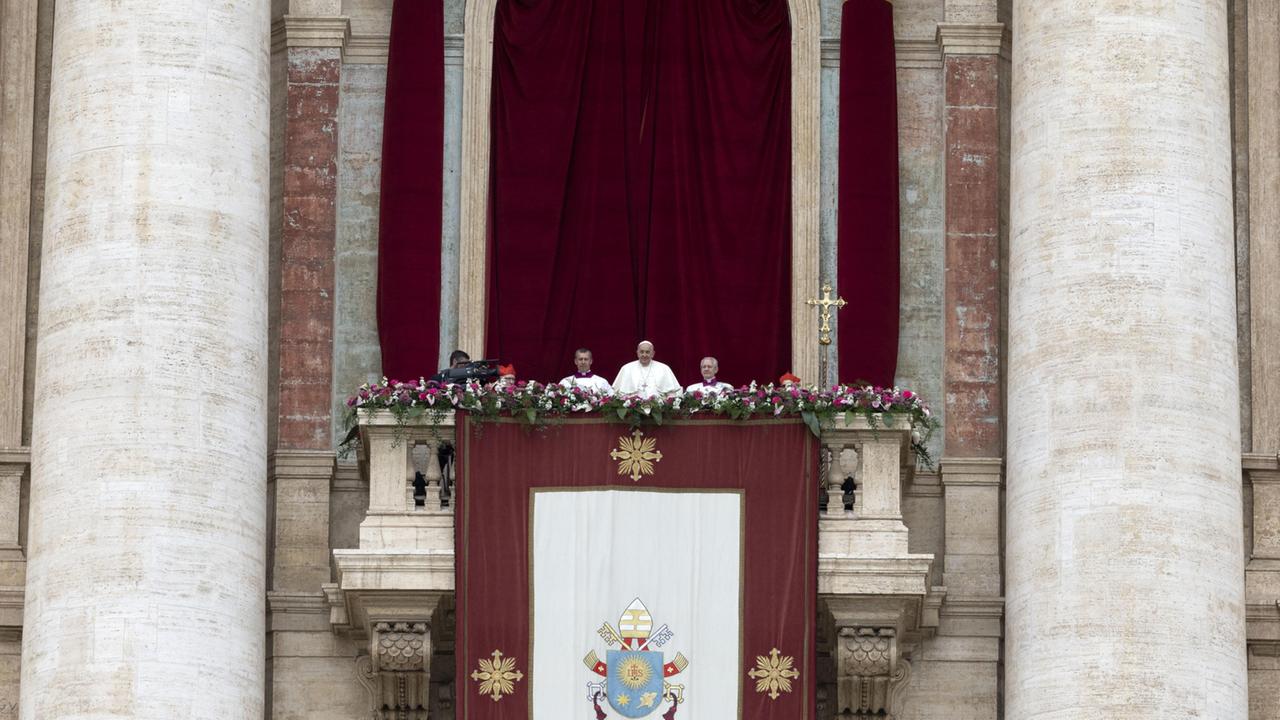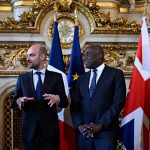analysis
Head of the Catholics, head of state, moral instance and a neutral intermediary – the Pope has many roles. But what is only claim and what political reality?
The last pictures of Pope Francis on Easter Sunday showed everything that made him out as a person. However, they also showed which international role the future Pope will continue to have in a globalized world.
The one picture: Francis, the person who can be driven across St. Peter's Square again. The other: Francis, the head of state, with the US Vice President JD Vance, at his last diplomatic date before his death on Monday morning.
Pope Francis's last diplomatic date was a visit to the US Vice President JD Vance.
Only claim or political reality?
The smallest state in the world, the Vatican, and its head of state, the Pope, have always claimed to work for the world and into the world. This was also visible on Easter Sunday: the Easter message, but not read by him, listed all the conflicts of the world, from Yemen to Ukraine.
In the end, he blessed the believers again with a weak voice. Easter blessing in particular is the epitome of the entire universal claim of the papacy, since it applies “urbi et orbi” – “of the city and the earth”.
The earth? Is that only pious claim of the smallest state in the world or political reality? What is the political relevance of the papacy today?
Regardless of the personality of a Pope, the papal diplomacy takes place today relatively clear principles: protection of human dignity, international understanding, of course primarily protection of Christians in the regions of the world.
A successor will not exclude Francis' topics
Pope Francis always drew attention to the edges and the marginalized, which was also reflected in his travels. When asked how he came to Mongolia with its 1,300 Catholics as a travel destination, he said: “I just thought of the very small Catholic community there.”
The first of his trips to 66 different countries was more and consciously political: a visit to the Italian Mediterranean island of Lampedusa. As a station for refugees on the way to Europe, it is a place where the political challenges of the globalized world become visible like hardly anywhere else in Europe.
Pope Francis in particular used his moral authority to repeat himself for peace, justice and environmental protection. His encyclical “Laudato Si '” addressed global challenges such as climate change and social injustice. Even a successor will not exclude these topics.
There will be more friction
The Vatican is a sovereign state, the Pope enjoys political independence as its head – Pope Francis pounded it very much. His focus on all conflicts and wars that broke out in his pontificate was on the victims and people. His conviction of the Russian War of Agency on Ukraine or the too significant criticism of the Israeli approach in the Gaza War also brought him criticism.
In contrast to the position of the Vatican, some personal spontaneity in Rome was to act as a neutral intermediary and peace piano. The special value of the Vatican in cultural-religious conflicts: The Pope plays a central role in promoting dialogue between different religions.
And now? Universal ideas are not exactly the economy, especially not with the most powerful man in the world, US President Donald Trump: withdrawals from the WHO and the Paris climate protection agreement, protectionism – all of this is prevented from a Pope who ultimately leads to a church whose name is from the Greek word “Katholikós”, in German.
The Pope as a moral instance, which is based on universal values and stands against political and economic interests, will continue to be friction here – whatever the new Pope.




